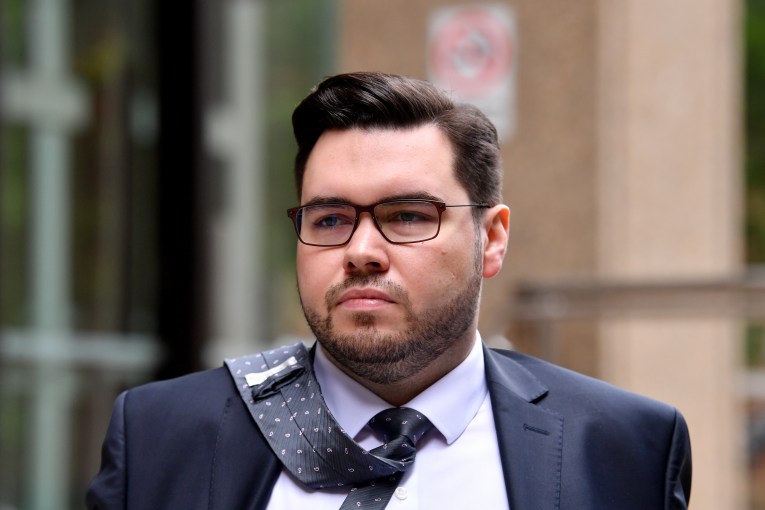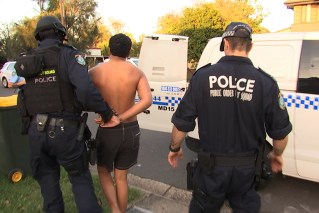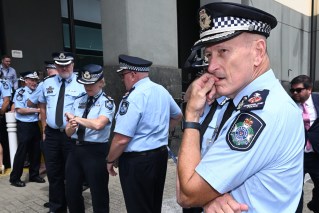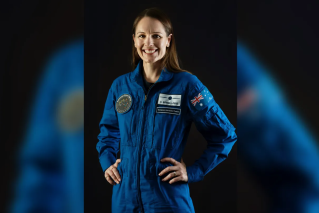Coroner hears refugee had ‘given up’ before fiery death
Queensland’s state coroner has called for “more certainty” for refugees after the death of refugee Omid Masoumali after he doused himself in fuel and set fire to his own clothing in 2016.
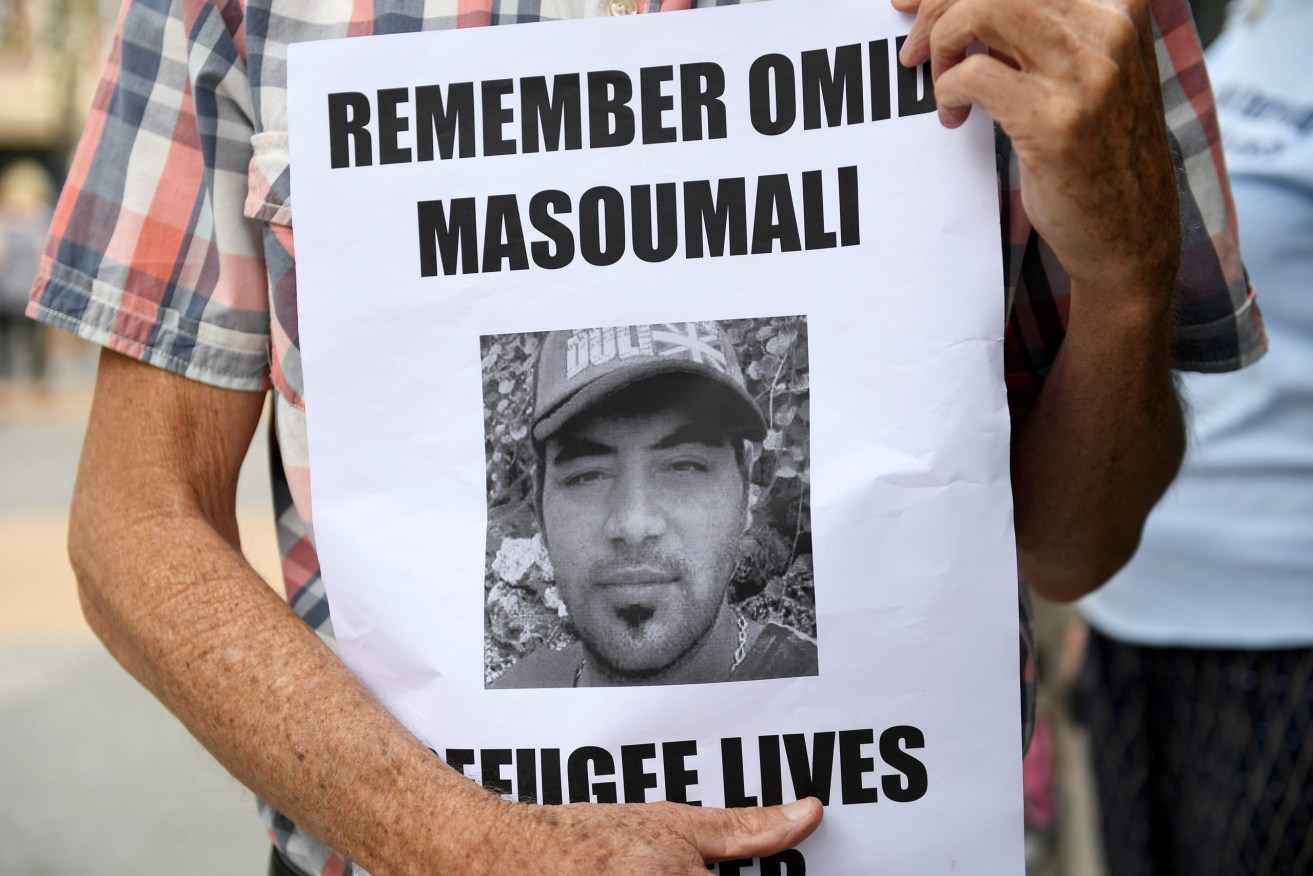
A photograph of Omid Masoumali is held outside the Brisbane magistrates court in 2019. The Iranian died after setting himself on fire at the Nauru detention centre in 2016. (AAP Image/Dave Hunt)
The Iranian refugee had “given up all hope” when he doused himself in fuel and fatally set himself on fire in government detention on Nauru, later dying in a Brisbane hospital.
State coroner Terry Ryan has called for “more certainty” for refugees after Omid Masoumali died in April 2016 in the fiery protest in front of representatives from the United Nations.
Mr Masoumali’s family has blamed Australia’s “harsh” immigration system for his death.
“My son loved Australia, but the way Australia rejected him and took his life will forever torture me,” his mother Elham Arouni Hesari said through Amnesty International.
“Omid never had any psychological problems at home, but unfortunately Australia did not welcome him, and the harsh immigration system led him to take desperate measures,” she said.
“How is it possible that in Australia, a country with advanced medical facilities, a young man can die this way?”
The coroner found that Masoumali’s horrifying protest was the action of a disturbed man “indifferent to whether he lived or died”.
Masoumali fled Iran in 2013 at age 22, filled with “optimism and resilience” determined to find a better life.
Three years later, Masoumali was refused entry to Australia and died an agonising death in a Brisbane hospital.
The catalyst for the tragedy was a UN fact-finding mission.
After weeks of protests and refugee attempts to self-harm to draw international attention to their plight, the UN sent inspectors to the tiny Pacific island.
For Masoumali, after 959 days stranded facing an uncertain future, the UN visit was the final straw.
His partner Pari tried to outline their plight to UN inspectors only to leave feeling “upset and frustrated” by detention’s ongoing impact on their mental health.
“The conversation … was a triggering event for Omid,” the coroner found.
Masoumali returned to the UN representatives with his clothing doused in fuel.
He told investigators he felt “miserable, tired, hopeless and exhausted” and set himself alight.
The critically injured refugee was airlifted to Brisbane with burns to 57 per cent of his body and died 31 hours later of multiple organ failure.
The coroner found there was no way of knowing where Masoumali had sourced the fuel or if he intended the fiery protest to be fatal.
“There is insufficient evidence that Omid had an intention to die at the time of setting himself on fire,’ he said.
“It is more likely than not that Omid was indifferent as to whether he lived or died.
“His actions were those of a person someone who had given up hope and felt powerless as a result of his prolonged placement on Nauru.
“His actions … demonstrated disturbed thinking and showed the level of significant anger, frustration and despair felt by Omid.”
Days earlier, a distressed Masoumali reached out to staff for mental health assistance, only for his pleas to be deemed a “standard non-urgent request,” the coroner found.
“This was not an appropriate response in the circumstances,” he said.
Medical facilities on the island were found to be deficient and lacking the clinical skills or equipment to treat critical injuries.
“If Omid received appropriate monitoring and ventilation before he was transferred (to Brisbane) … his chances of survival, while not assured, would have been greatly increased.”
While the coroner did not explore government policy, Nauru remains Australia’s only regional processing centre for asylum assessment claims.
“The negotiation of resettlement arrangements for refugees involves matters of high policy,” Mr Ryan said.
“There is a need to provide more certainty to refugees to ensure those who are successful in their asylum applications are resettled in their countries expeditiously and that refugees after given some assurance that will be achieved.”
Lifeline 13 11 14
beyondblue 1300 22 4636
